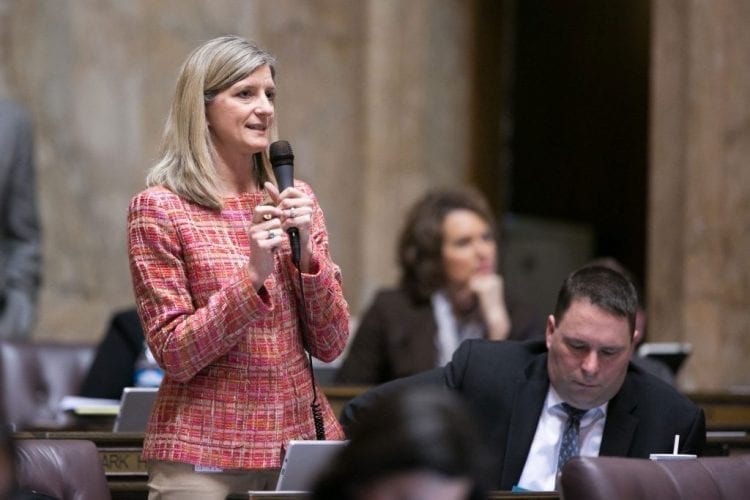The 2018 legislative session began today (Jan. 8) and is scheduled to run for 60 consecutive days
Rep. Vicki Kraft, R-Vancouver, has introduced legislation to change the business and occupation (B&O) tax reporting frequency for small business owners.
Current guidelines for monthly reporting were established by the Department of Revenue (DOR) nearly three decades ago. Kraft says these outdated requirements are forcing many businesses into reporting their tax obligations monthly, rather than quarterly or annually.

“Monthly tax reporting is time-consuming and costly for small businesses,” said Kraft. “When I came to Olympia, I made a commitment to reduce burdens on small businesses that stifle innovation and growth. This bill offers a solution that will have a big impact by lessening the administrative burdens many small business owners face.”
Almost all businesses in Washington state are subject to B&O tax. DOR’s reporting and payment requirements are based on a company’s annual B&O tax obligation. The current threshold for monthly B&O reporting, as opposed to quarterly or annual reporting, is $4,800 annual estimated tax liability. That means a service business with more than $320,000 in gross receipts currently has to file monthly reports with DOR.
According to the 17th District lawmaker, a business with $4,800 in annual tax liability in 1990, the last time the monthly filing threshold was reset, is equivalent to a business with around $10,000 in tax liability today. Kraft’s bill would update DOR’s tax liability amounts based on the current inflation rate.
House Bill 2350 would base filing frequency on the following criteria:
- Annual filing – tax liability is less than $10K;
- Quarterly filing – tax liability is at least $10K, but less than $100K;
- Monthly filing for a tax liability of $100K or more.
“Small businesses are a key driver of our state’s economic growth, so it’s vital we help them continue to grow and reach their full potential,” continued Kraft. “By simply updating DOR’s tax liability reporting requirements, we can make a huge difference in the bottom line for many smaller companies in our state.”
The 2018 legislative session began today (Jan. 8) and is scheduled to run for 60 consecutive days.
Information provided by Washington State House Republican Communications, houserepublicans.wa.gov .




